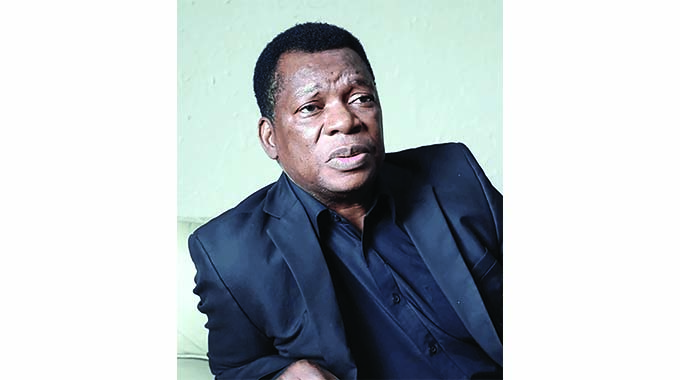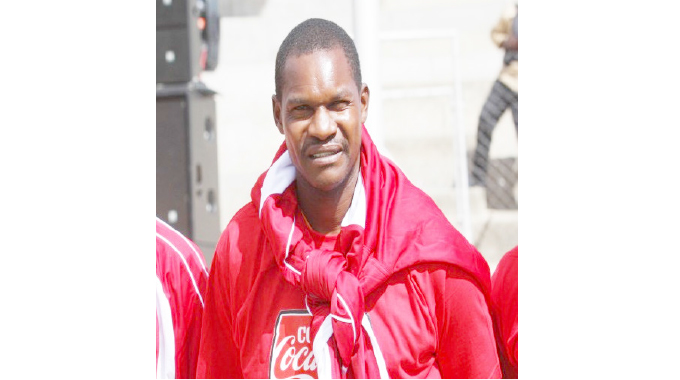‘The future of Africa is in our hands’

Mashudu Netsianda in Victoria Falls
PRESIDENT Mnangagwa has implored African countries to capitalise on the dawn of the 4th industrial revolution to create an enabling intellectual environment that helps bridge the gap between the continent and the developed world.
He was addressing delegates while officially opening the 18th session of the African Regional Intellectual Property (ARIPO) Council of Ministers conference in Victoria Falls yesterday.
The conference, which started on Monday, takes place at a time when many African countries, including Zimbabwe, are embracing intellectual property (IP) as a powerful tool for economic growth.
Experts have stressed the need to formulate and review IP policies in an endeavour to nurture and anchor innovation, competition and value addition.
Recently, the country launched the Zimbabwe National Intellectual Property Policy and Strategy which provides direction on development of IP systems among other enablers. The strategy seeks to spur innovation and creativity in various sectors of the economy.
It also addresses education and funding, identifies priority areas for research, human resource development needs, and the expected products for research initiatives.
President Mnangagwa said it is imperative that African leaders build ecosystems and structures that fully support creativity and innovation in schools, institutions of higher learning, industry and within communities.
He said Africa, through organisations such as ARIPO, should play a leading role in addressing the existing socio-economic inequalities between the continent and the developed countries through harnessing, promoting as well as protect intellectual property in the continent.
“Intellectual property is a critical driver for the trade and socio-economic development of every nation. It drives economic growth and competitiveness through encouraging innovation, whilst at the same time protecting consumers by ensuring the purchase of secure and assured goods,” he said.
“In order to strike the right balance between interests of innovators and the wider public interest, organisations such as ARIPO promote and protect intellectual property by enhancing cooperation among member States as well as international intellectual property organisations.”
The President said Africa should desist from mourning over lost opportunities during the previous industrial revolutions and colonialism.
“We cannot change the past, the future is in our hands and Africa is rising, and our time is now. Through organisations such as ARIPO, (we) must therefore create an enabling intellectual environment to bridge the socio-economic divide that exists between our continent and the rest of the developed world,” he said.
“The present generation of African leaders is determined to ensure that Africa plays its part and seizes the opportunities emanating from the advent of the fourth industrial revolution. This entails that we be better prepared to leapfrog and compete with other developed jurisdictions.”
President Mnangagwa noted that today’s dynamic world also depends on science, technical knowhow, innovation and business skills among other considerations.
“Further to this, the present threats of global pandemics and climate change related challenges among others, demand that Africa develops new capabilities and asserts its intellectual property rights over the same,” he said.
The President said the benefits of intellectual property must be accessible to ordinary entrepreneurs and communities as they innovate around current realities, leveraging on the abundant and unique natural resource endowment of Africa.
He also challenged ARIPO to develop measures that mitigate the risks associated with a globalised world, connected digital landscape and the 4th industrial revolution.
“As African leaders as various levels, we have the sacred obligation to be more assertive in protecting our unique creativity, innovations and rich cultural heritage. This forum must, therefore, be used to sharpen the collective focus with regards to intellectual property so that our people, especially youths, effectively grow and transform our economies,” said President Mnangagwa.
The President also announced that Government has taken a decision to create a Companies and Intellectual Property Office whose mandate includes the registration and administration of companies and intellectual property in Zimbabwe.
He said the new office will define the way intellectual property issues are administered. The office will further mainstream the usage of intellectual property rights to positively impact the economy and stimulate the development of new products and services.
To date, President Mnangagwa said his Government has also implemented the Heritage Based Education 5.0 model, which has reconfigured the country’s education system to focus on science, technology, innovation and industrialisation.
The model is enhancing scientific and technological capabilities to accelerate the modernisation and industrialisation of the economy.
“The ultimate objective is to move away from a consumptive system to a more productive system that delivers high quality and modern made in Africa’s goods and services.
This, together with innovation hubs established at institutions of higher learning as well as the rural industry systems being set up by Government, will lead to increased productivity, technological advancement, modernisation and industrialisation, which leaves no one and no place behind,” said President Mnangagwa.
“These initiatives are unleashing the potential and talents of our youths so that they play their part towards providing solutions for enhancing production and productivity.”
President Mnangagwa called on the younger generation to fully utilise the enabling environment being created by African governments through organisations such as ARIPO, to develop more creative ideas and products that propel the continent towards the realisation of its dream.
He also commended ARIPO for embracing technology ICT solutions as well as automation of office systems and processes.
“Going forward, I exhort ARIPO to consolidate the capacities within different jurisdictions for seamless inter-connectedness, more so in the context of the African Continental Free Trade Area and our collective quest to build a knowledge economy,” said President Mnangagwa.
ARIPO is an intergovernmental organisation created in 1976 by the Lusaka Agreement concluded under the auspices of the United Nations Economic Commission for Africa (UNECA) and the World Intellectual Property Organisation (WIPO).
Membership is open to all African Union (AU) member States and currently there are 21 members which include Zimbabwe, Botswana, Eswatini, The Gambia, Ghana, Kenya, Lesotho, Liberia, Malawi, Mauritius, Mozambique, Namibia, Rwanda, Sao Tome and Principe, Seychelles, Sierra Leone, Somalia, Sudan, Uganda, Tanzania and Zambia.
Among those who attended the event are Justice, Legal and Parliamentary Affairs Minister Ziyambi, Ziyambi, Permanent Secretary in the ministry Mrs Virginia Mabiza and several delegates from ARIPO member States. — @mashnets











Comments